As one of Australia’s most prolific actors, Meyne Wyatt has moved gracefully from stage to screen. Here, Wyatt explains his latest release, The Moogai, and what the tale tells us about intergenerational trauma facing First Nations people.
When the horror short film The Moogai first dropped in 2020, the incredibly impressive and succinct project showcased something Aussie film lovers had scarcely seen before. The 15-minute effort offered a rare and confronting glimpse at horrors still echoing within the First Nations community, with The Stolen Generation, undoubtedly one of the most reprehensible acts committed on Australian soil, hanging a heavy shadow over the film. It follows a beleaguered family at the mercy of the titular Moogai, an evil spirit that seeks to separate Indigenous mother and child. It’s no accident that The Moogai itself is cast as a monstrous, two-faced, seemingly unstoppable being with chalk-white skin, after all.
The short was well received and laid the foundation for a full, feature-length adaptation starring the same cast: notably Meyne Wyatt as Fergus and Shari Sebbens as Sarah—a young family targeted by the supernatural stalker. We spent some time with Wyatt to talk through the process of taking a short to full feature, evolving a character through that process, and just what The Moogai means.
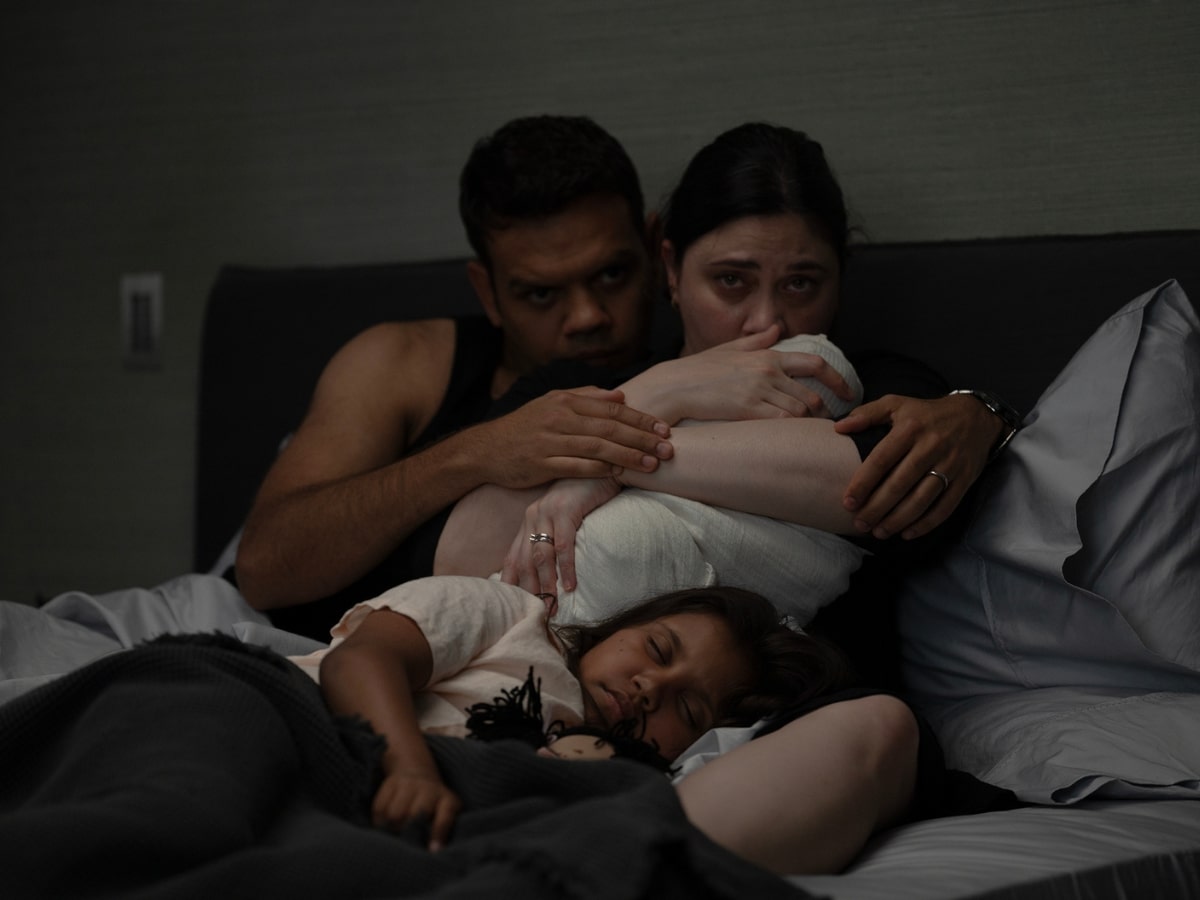
MoM: To start with, can you talk me through your journey as an actor, and how you got cast in The Moogai?
I’ve been an actor for 14 years now, I think since I graduated from acting school, and in that time, I’ve done a few films, television, and theatre. Along that journey, Jon Bell, who I worked with in an acting capacity actually on Blak Comedy (ABC), came to me with this idea for a short film. It was titled The Moogai, and that was the proof of concept for the feature, and I think we openly said that he was a fan , so I was like, ‘oh sweet, that’s nice to hear’. He’s done Gods of Wheat Street which was a TV series for the ABC, and I think it was great to be acknowledged in that capacity.
He asked me if I wanted to get on board, and I jumped at the opportunity: I liked the concept, and I think it’s an interested idea to weave social commentary with a genre film and with the success of that short, they were able to secure some funding, and he came back to me to work on the feature.
I saw my character (Fergus) from the original short being fleshed out a bit more and showing a bit more nuance, and I thought that was exciting, plus I wanted to sink my teeth into something that was a bit more meaty and juicy.
MoM: I wanted to talk about that: Did going from the short to the feature film help you to broaden out the character? You already had some experience with Fergus…
Yeah for sure, and I think the short is a bit of a different film, actually. I feel like you can notice a difference, it goes further into psychological thriller horror, rather than a more traditional horror film, and I feel like that is probably more interesting to me, and that’s a genre I’d like to work more in.
There are certain aspects of my character, Fergus, that could be a bit one-note, I think, but I wanted to push the envelope a bit and make you think. Maybe he’s a bit more problematic and nuanced than you think, and he’s making some decisions that are questionable. I think that’s human. Not everyone is straight down the line, and you can really go into the trope of a gaslighting husband, and there’s a touch of that that I had fun exploring – we had conversations on set about diving into that a bit more – but at the same time we tried to find a balance of that because, often, you’re with him as an audience: he’s the window to viewing this potential psychosis of Sarah, Shari’s character.
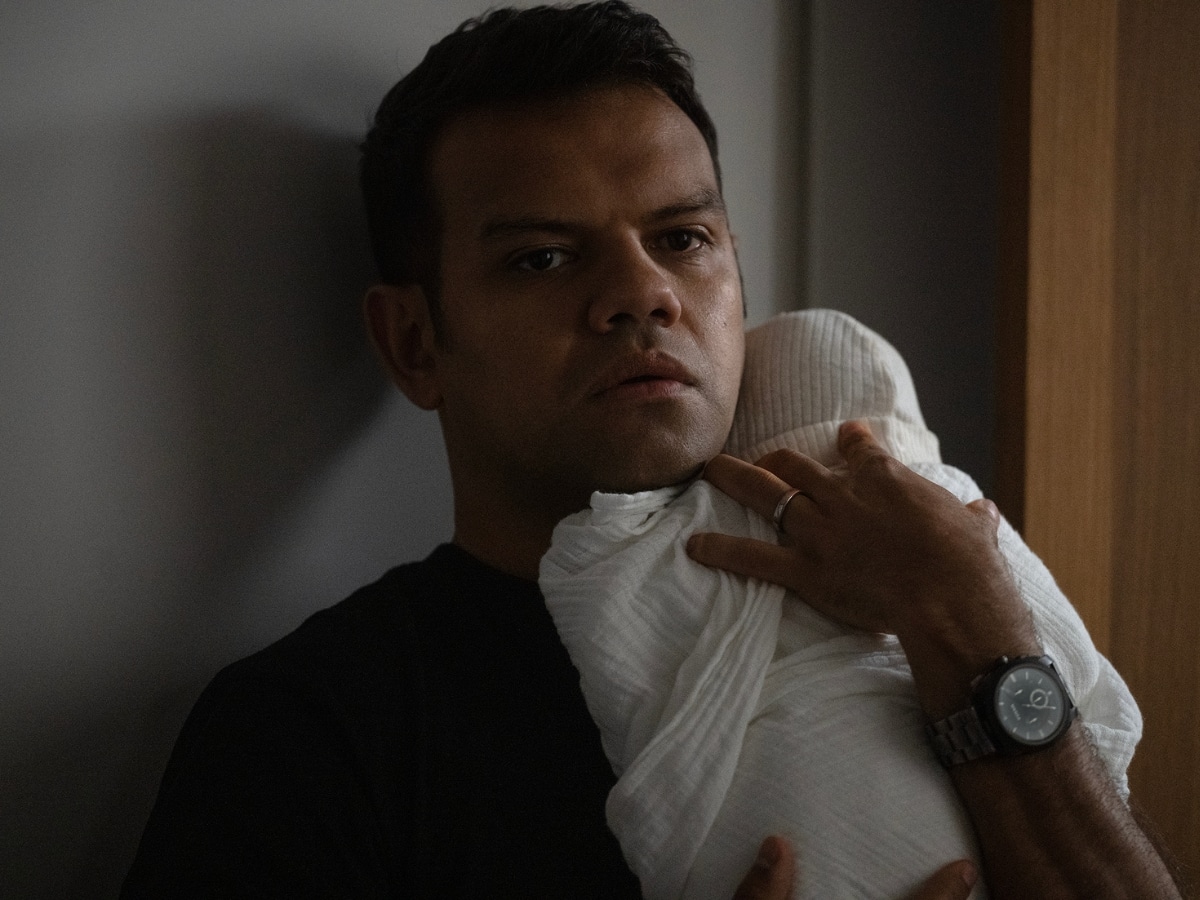
“It was interesting to be playing a good guy, but who also made you think, ‘I like that he did this, but I didn’t like this’. You need those redeemable qualities for a character to be redeemed.”
MoM: I found it interesting that there were quite a few moments in the film where Fergus had talked to the doctor, and he’s trying to help, but things get twisted around, and he is constantly having to explain himself.
I think there’s something in somebody not understanding mental health, as well, and not knowing the right tools to help someone. You know, you want to believe your partner when you’re in a relationship, and you want the best for them and for your family, and you don’t want to set them up in any way. There’s an urgency for him to want to help her, but that’s also getting warped by something else, and I think that’s part of the story of what the ‘Moogai’ is and his complicity in what the ‘Moogai’ is. It’s part of how we can all fall into the trap of being manipulated, and I think that’s something interesting that Jon (Bell) was able to capture in the film.
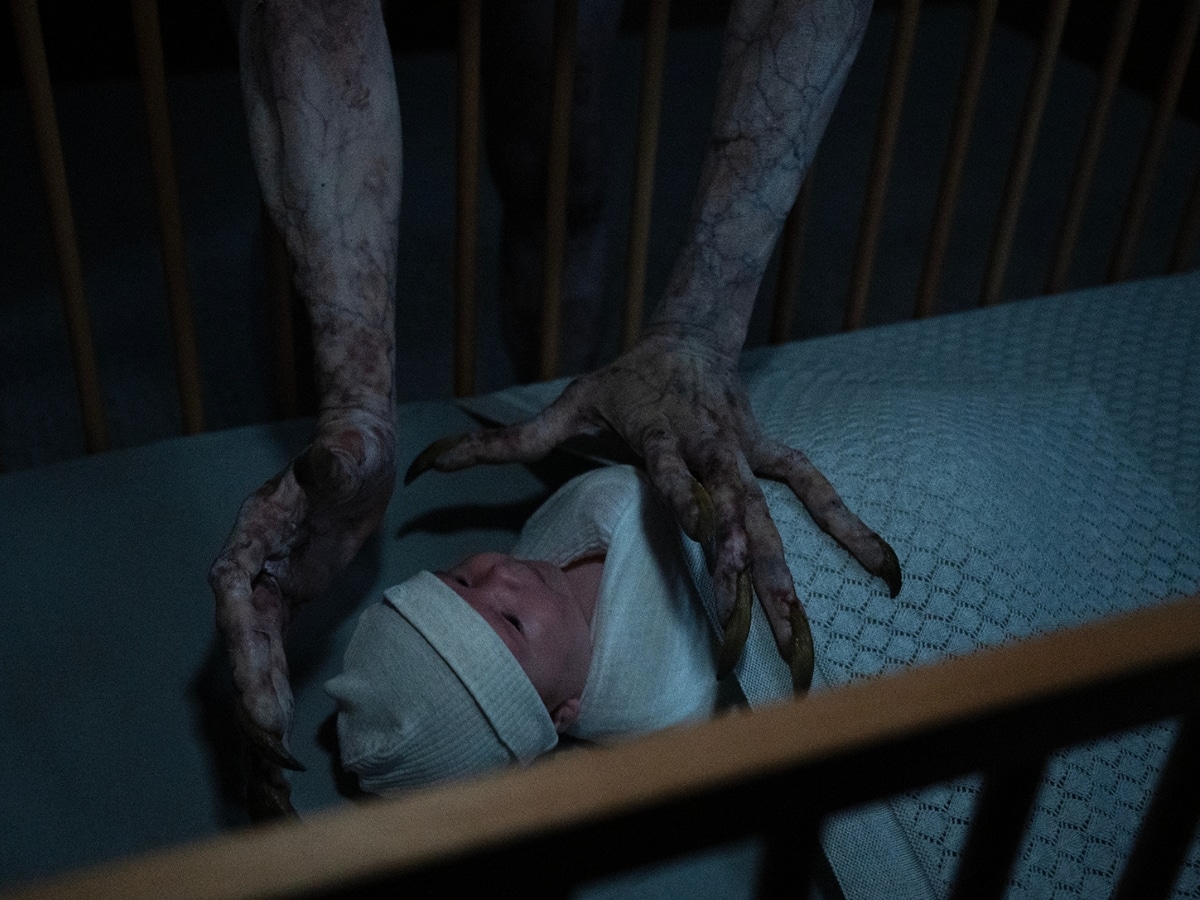
MoM: Talking about the metaphor of ‘The Moogai, and the social commentary side of the film, it does cover quite a wide spectrum of topics. ‘The Moogai’ touches on the Stolen Generation and generational trauma, as well as modern scepticism from current First Nations people looking back at older practices. Can you talk me through that?
I think it’s done in a similar way to Jordan Peele did with Get Out, and the new, very A24-style of social commentary through thriller and horror. I’ve heard Jon speak about the real presence of children, and wanting to keep them safe, and them being taken away, and that truly being a horror, and being horrible. He really wanted that to be the driving force of the film, and it’s the thing that’s most scary because it’s alive and well in Australia today.
The movie’s a bit of a Trojan Horse in that it’s entertaining and has all the moments and beats of a horror movie, but is making sure that there’s something else going on here, and it’s in the social consciousness at the moment to be willing to go away with a different perspective after watching a film, and being able to have those conversations and engage with people afterwards. I feel like it’s a clever way of taking people for a fun ride while still speaking about something and not just being a rollercoaster.
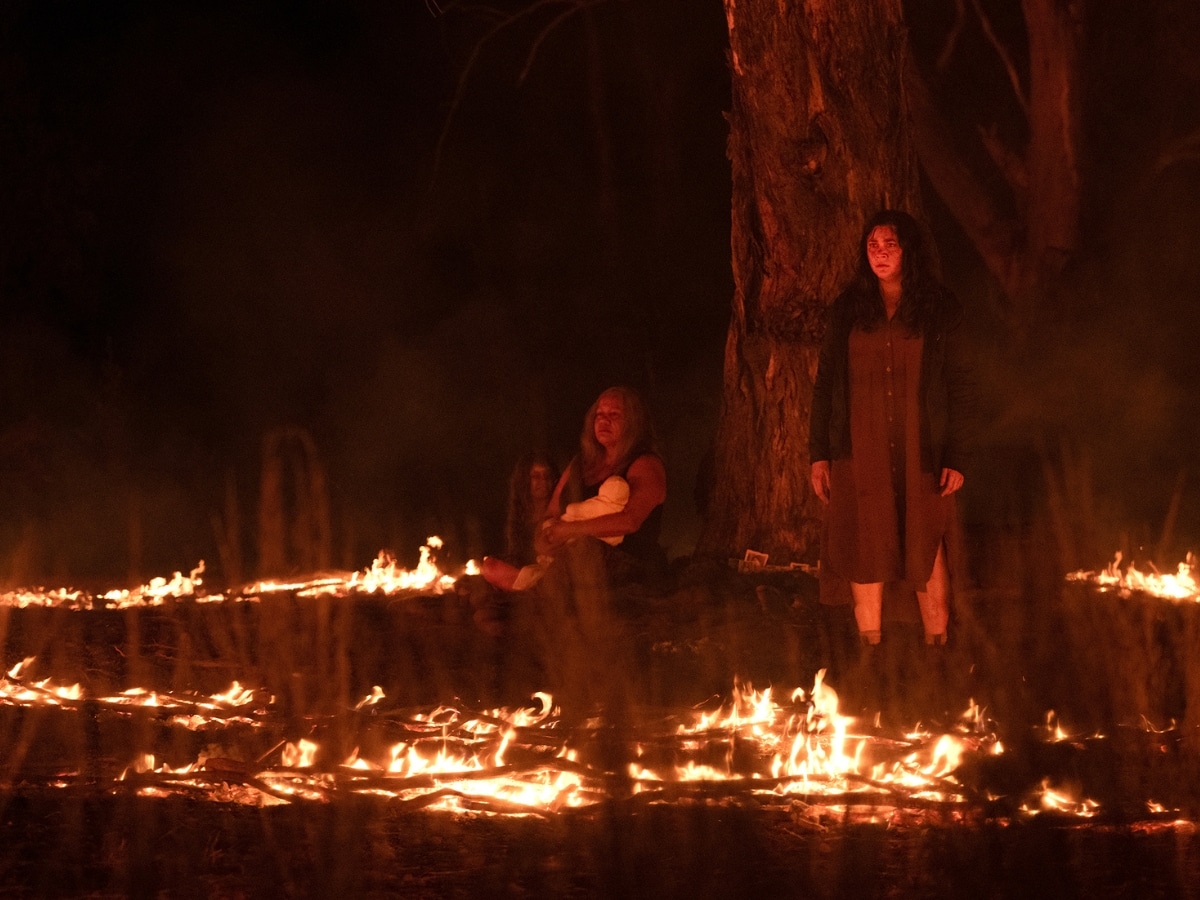
MoM: *Spoilers* I also found it interesting that Fergus dies in a car crash in the short but in police custody in the feature film—in a way that, in my mind, was very reminiscent of the way George Floyd died. It feels like an intentional choice. Was that something that you and Bell talked about?
I don’t think we had an explicit conversation about it, but we knew that we were on the same page with that. David Dungay, who was an Indigenous man imprisoned in Sydney, and his final words were ‘I can’t breathe’, and that was before George Floyd. So, I think there’s a resonance there and an echo, and I think that Jon wanted to explore that – the ‘Moogai’ isn’t one thing, you know? I think there’s something there by Jon in everything being connected, like, this thing leads to this, and this thing leads to this, and your interpretation that you go away with can’t be wrong: I think it can be whatever you need it to be.
MoM: Fergus just kind of disappears from the movie at the end, it was kind of sad.
Yeah, I think that’s a conscious choice because The Moogai is a story about women passing on intergenerational trauma and breaking those cycles, and I always understood that, you know?
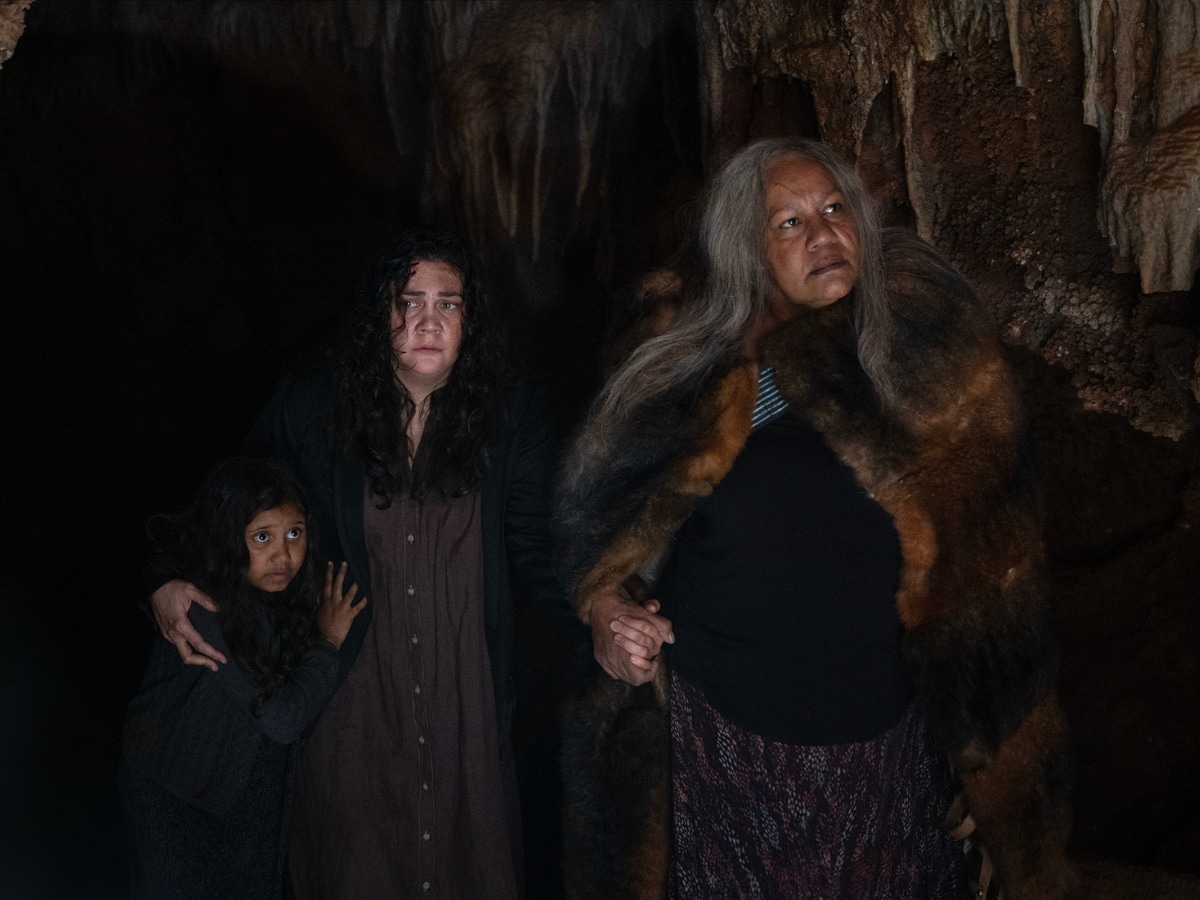
“It’s not about Fergus, it’s really about Sarah, her mother, and her daughter.”
MoM: You touched on some of your other projects earlier: you’ve done quite a bit of theatre, City of Gold is a bit of a standout, can you talk to me a bit about that? I saw that is potentially getting turned into a TV Show.
Yeah, so I’m in development for a TV Show with City of Gold. I’ve previously done work with Netflix on Heartbreak High, and Total Control with Blackfella Films and ABC, and in heaps of rooms for other projects, but City of Gold has been picked up by Bunya Productions and I’m now trying to develop that into something new. City of Gold as it is is very much a play, and I think there’s a good skeleton there, so now I’m building off that and making sure it’s something that is new and relevant to now.
When I first wrote City of Gold it was 2017, and I think the world has changed a lot since then, and TV has changed a lot since then. So to me it’s about coming out with your own story, but making sure it’s something new and can become something else. The plays that have made that cross-media divide that have done well, like Baby Reindeer or I May Destroy You, these are the kind of stories that go beyond the page and stage (in the adaptation).
The Moogai is written and directed by Jon Bell. It stars Shari Sebbens, Meyne Wyatt, Tessa Rose, Clarence Ryan, Toby Leonard Moore and Bella Heathcote, and had its world premiere at the 2024 Sundance Film Festival in January. The film was officially released in Australian cinemas on 31 October 2024.
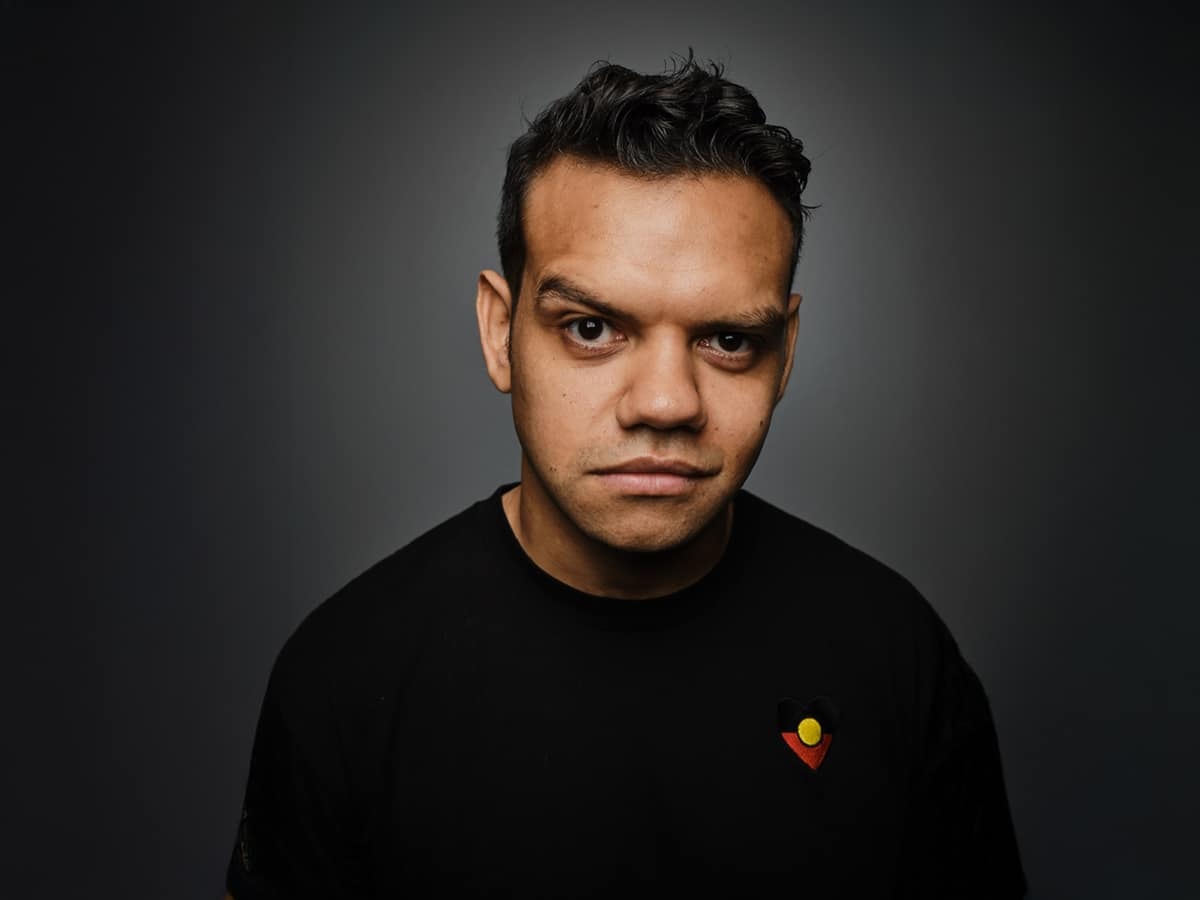



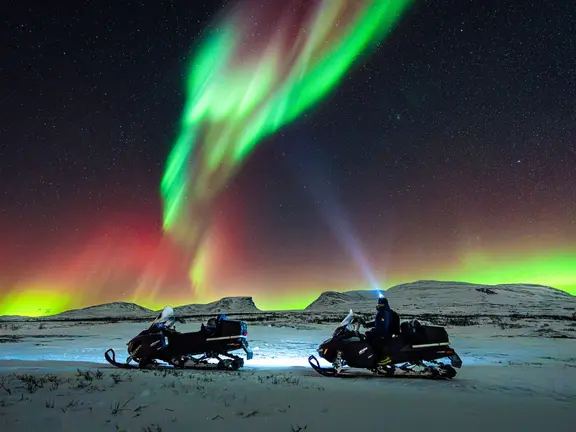


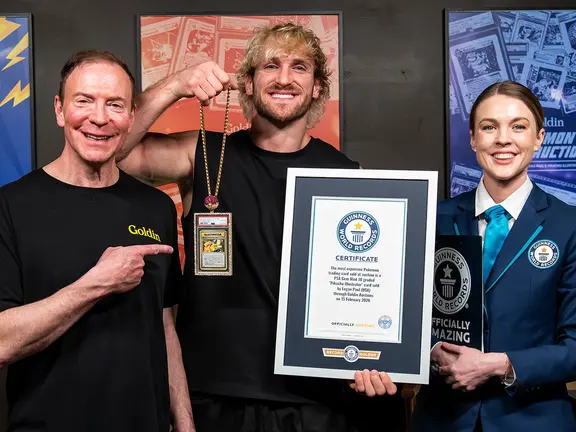


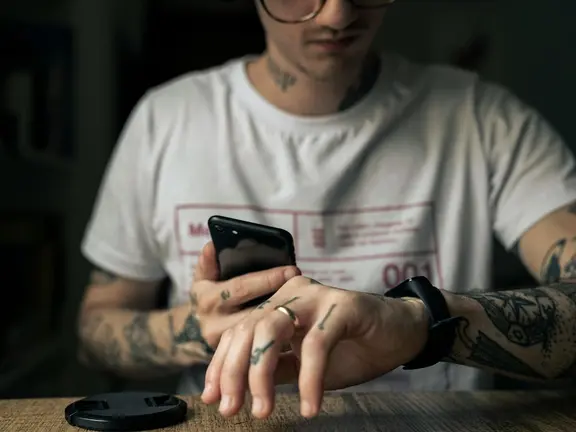




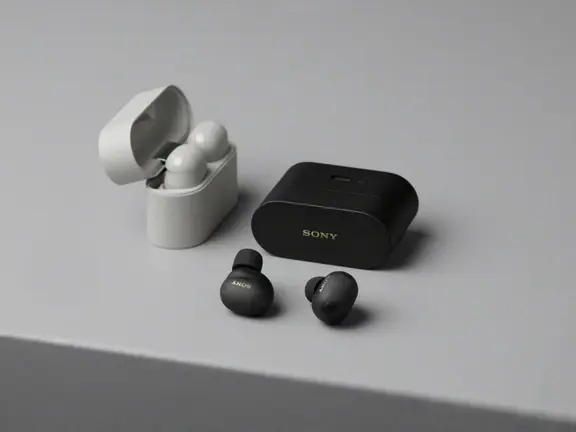









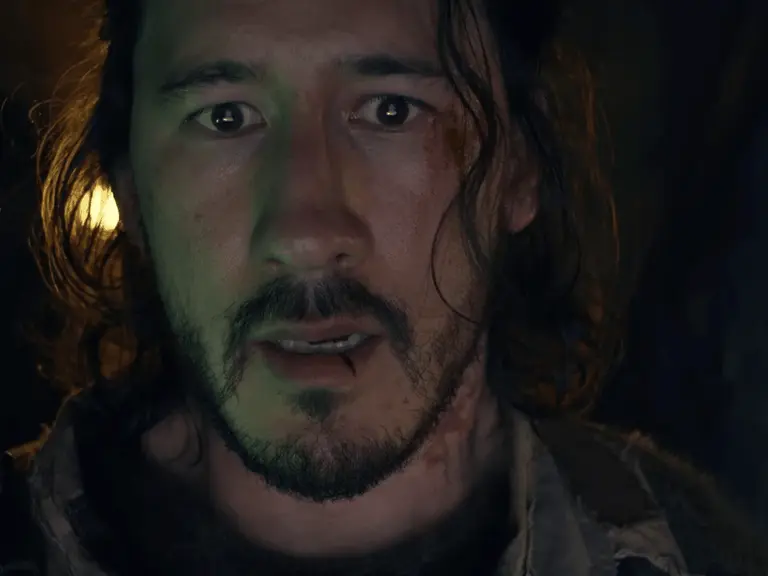

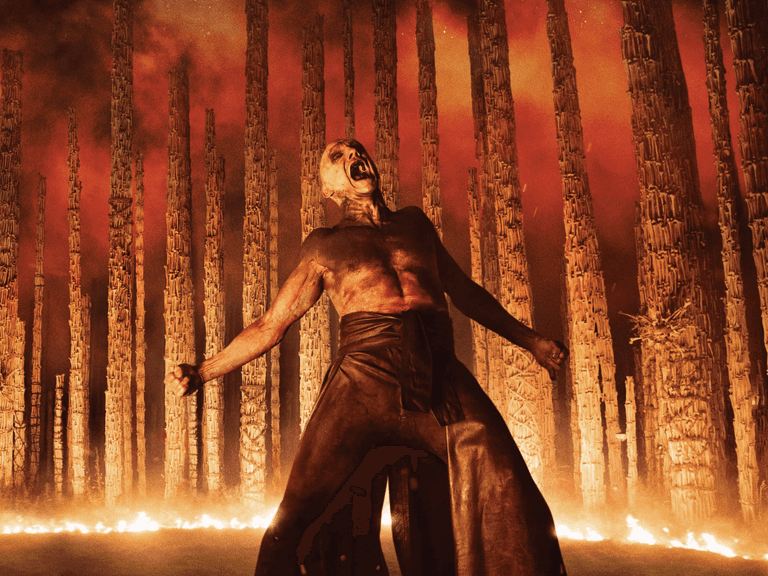
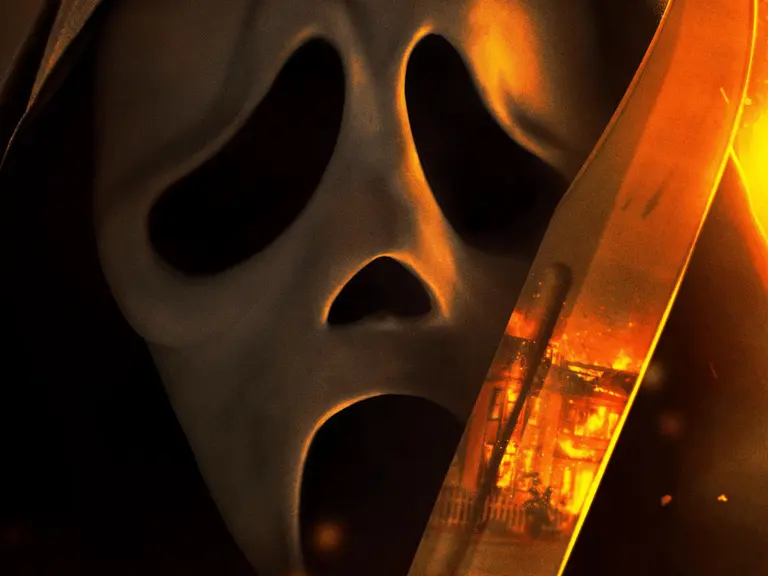
Comments
We love hearing from you. or to leave a comment.